Alumni
Kim Hamonic
Research Technician
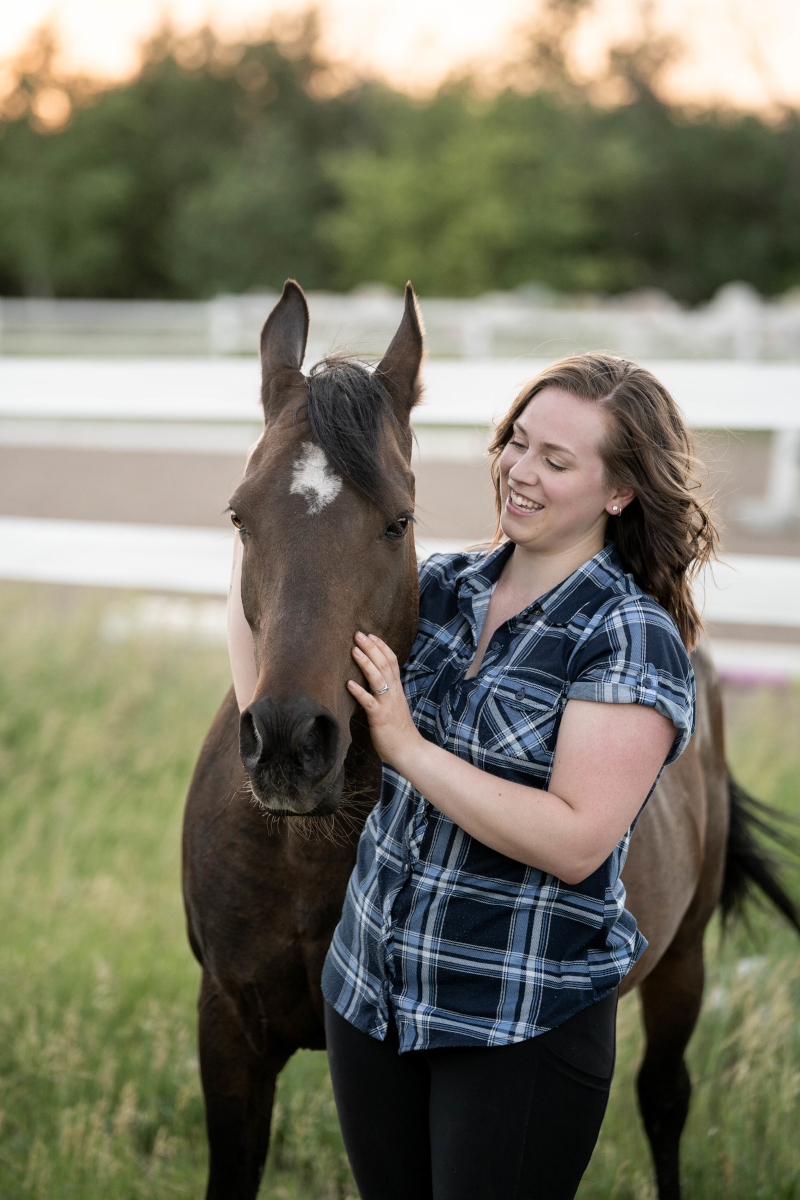
Kim completed her BSc in Microbiology and Immunology at the University of Saskatchewan followed by a MSc in Veterinary Microbiology through VIDO-Intervac. Kim then worked in Animal and Poultry Science specializing in gene expression, cell culture and microbiology before moving to Dr. Helgason's lab where she currently specializes in molecular biology, namely Next-Generation Sequencing. Outside of work, Kim enjoys horseback riding, reading and photography.
Dr. Peter (Yunliang) Li, Ph.D.

Peter (Yunliang) Li obtained his Ph.D in Developmental Biology from the University of Chinese Academy of Sciences in 2014. Then, he started his journey in the study of the microbiome. From 2015 to 2018, Peter worked as a postdoc in Agriculture and Agri-Food Canada to study how different agricultural practices including phosphorus sources, long-term fertilization, crop sequence, and inoculation of arbuscular mycorrhizal fungi affect crop productivity and microbiomes in soil and crop root. In 2019, he joined Prof. Bobbi Helgason’s group and focused on illustrating the responses of the bacterial and fungal microbiomes to contrasting N fertilization in the rhizosphere and the root of eight Brassica napus varieties.
Dr. Mengying (Alex) Liu, Ph.D.
 Alex obtained her MSc degree in Agriculture from the Northwest A&F University in 2018. Thereafter she started her Ph.D. project sponsored by the China Scholarship Council at the University of Saskatchewan in the Department of Plant Science with Dr. Bobbi Helgason and Dr. Leon Kochian. Alex's project "Investigating the Root-associated Microbiomes and Root System Architectures (RSAs) under Different Phosphorus Availabilities in Different Canola Genotypes" revealed P-reponsive root- and rhizosphere bacterial and fungi in two canola varieties with relatively small and large root systems. Alex worked in the field, lab and greenhouse where she used amplicon sequencing for microbiome profililing and performed root imaging of canola grown in rhizoboxes to understand canola root - P - microbiome interactions.
Alex obtained her MSc degree in Agriculture from the Northwest A&F University in 2018. Thereafter she started her Ph.D. project sponsored by the China Scholarship Council at the University of Saskatchewan in the Department of Plant Science with Dr. Bobbi Helgason and Dr. Leon Kochian. Alex's project "Investigating the Root-associated Microbiomes and Root System Architectures (RSAs) under Different Phosphorus Availabilities in Different Canola Genotypes" revealed P-reponsive root- and rhizosphere bacterial and fungi in two canola varieties with relatively small and large root systems. Alex worked in the field, lab and greenhouse where she used amplicon sequencing for microbiome profililing and performed root imaging of canola grown in rhizoboxes to understand canola root - P - microbiome interactions.
Dr. Sunshine De Caires, Ph.D.

Visiting PhD student
Sunshine De Caires completed her Ph.D. at the University of the West Indies, St Augustine, Trinidad, and Tobago. A major aspect of her Ph.D. research focused on the use of geophysical techniques such as electromagnetic induction (EMI) to assess the spatial patterns of the physio-chemical and hydrological soil properties. Secondly, in conjunction with the University of Saskatchewan, under the guidance of Professor Bobbi Helgason, the research investigated the microbial community structure, functional shift, and overall soil health for watershed management, using next-generation sequencing technologies and geophysical techniques. This work follows from her MPhil research, which characterized the Spatio-temporal variability of soil using proximal EMI sensing and delineated management zones for precision agriculture application in Small Island Developing States.
Dr. Zayda Morales, Ph.D.
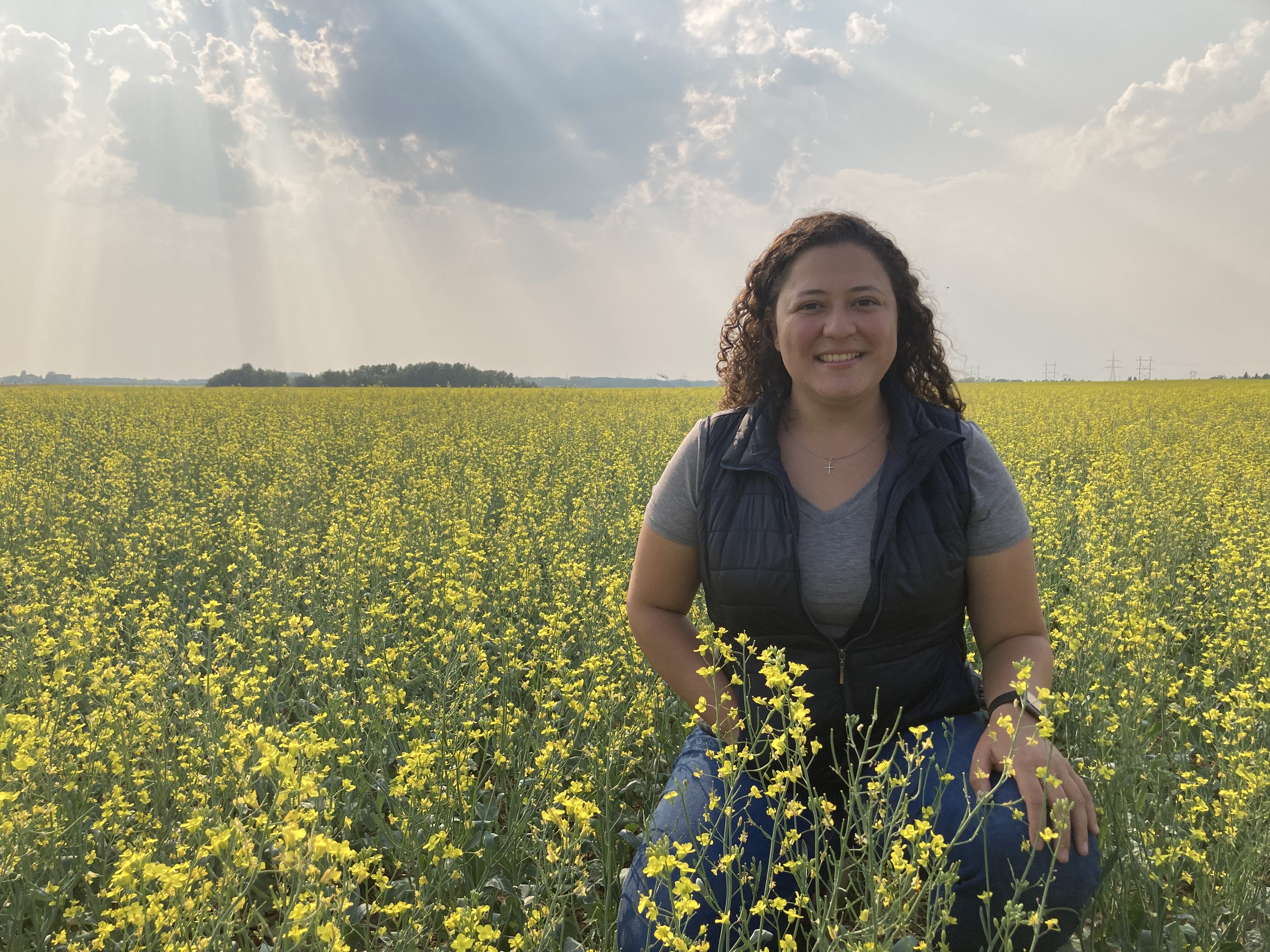
PhD Graduate
Thesis: Epiphytic Seed Microbiomes of Wheat, Canola, and Lentil
Zayda Morales Moreira is a PhD alumna in Applied Microbiology and worked under the supervision of Dr. Bobbi Helgason and Dr. Jim Germida. She completed her master's degree in Agricultural Microbiology at Federal University of Recôncavo da Bahia in Brazil and her Bachelor of Science in Biotechnology at Army Polytechnic School in Ecuador. Zayda's PhD thesis was part of Phenotyping the Plant Microbiome project, managed by the Global Institute for Food Security (GIFS), which studied the role and contribution of microbial communities in plant fitness and yield. She analyzed the microbiota naturally carried by canola, lentil, and wheat seeds to better understand the transmission and inheritance of microbes in plants. Findings in this study will lead to novel strategies for sustainable crop production by manipulating or engineering the plant microbiome through biotechnology and breeding. Currently, Zayda is a Postdoctoral Research Fellow at University of British Columbia. Zayda is an active community volunteer, plays tennis, swims and is an avid reader of Jules Verne books.
Dr. Panchali Katulanda, Ph.D.
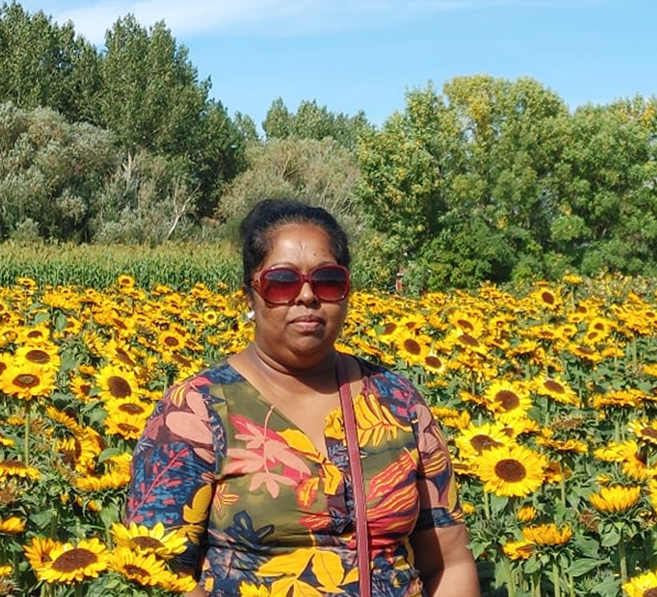
PhD Graduate
Thesis: Land Use Legacy Regulates Microbial Community Structure and Function in Transplanted Chernozems
Panchali Katulanda earned her PhD in soil science in fall 2017. Her research interest focuses on understanding the impact of different cropping systems, land-use and climatic changes on the soil microbiome and their functions (C and N cycling). Currently, as a postdoctoral research fellow at the University of Saskatchewan, Panchali is exploring the resiliency of soil stable C pool to C flux changes that arose due to land-use changes at different soil depths and different landscape positions of annual and perennial systems.
Amanda Mitchell, M.Sc.
 Amanda grew up on a grain farm in Southwestern Saskatchewan and completed her BSc in Agronomy with a minor in Soil Science at the University of Saskatchewan. Her undergraduate thesis literature review project examined the non-target effects of Chlorothalonil on the Nitrogen Cycle, also under the supervision of Dr. Helgason. Amanda's current research investigates microbial contributions to soil carbon sequestration in Saskatchewan croplands by examining carbon dynamics in buried A horizons. Buried A horizons formed when soil eroding from the knolls of hills accumulated in the depressions of the hillslope typically when the fields were being managed with conventional tillage. These buried A horizons are rich in stable organic matter making them a key area to understanding carbon sequestration in soils. Amanda enjoys curling, hockey, hiking, reading, riding horses and farming in her spare time.
Amanda grew up on a grain farm in Southwestern Saskatchewan and completed her BSc in Agronomy with a minor in Soil Science at the University of Saskatchewan. Her undergraduate thesis literature review project examined the non-target effects of Chlorothalonil on the Nitrogen Cycle, also under the supervision of Dr. Helgason. Amanda's current research investigates microbial contributions to soil carbon sequestration in Saskatchewan croplands by examining carbon dynamics in buried A horizons. Buried A horizons formed when soil eroding from the knolls of hills accumulated in the depressions of the hillslope typically when the fields were being managed with conventional tillage. These buried A horizons are rich in stable organic matter making them a key area to understanding carbon sequestration in soils. Amanda enjoys curling, hockey, hiking, reading, riding horses and farming in her spare time.
Kehinde Adams
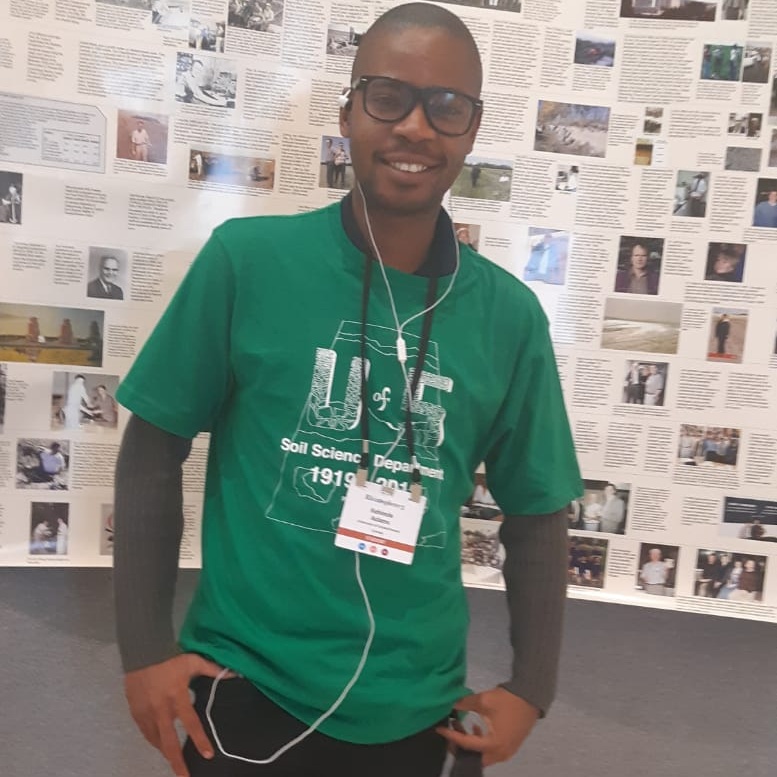
Adams obtained an undergraduate and MSc degree in Nigeria and the UK (courtesy of commonwealth scholarship) respectively, studying soil science. He is now a MSc student with a deep interest in understanding soil processes that can improve soil productivity and organic carbon stabilization. For Adams' MSc studies under the supervision of Dr Bobbi Helgason, he is carrying out field and laboratory experiments to understand some of the factors that promote the storage of root-derived organic matter in soils. He is passionate about Agriculture and Food Security, especially in low and middle income countries.
Meagen Reed, M.Sc.
 Meagen's M.Sc. project investigated the impact crop rotation versus continuous cropping on soil biogeochemistry including particulate organic matter versus mineral associated organic matter carbon storage and stabilization in agricultural soils with focus on microbial abundance, community structure and soil carbon dynamics. Meagen received her Bachelor of Science in Agriculture at the University of Saskatchewan after which she worked as a consulting agronomist and agricultural sales rep in northern Saskatchewan. Originally from Yorkton, SK, Meagen currently resides in Saskatoon, SK. Outside of the lab, she enjoys boating/canoeing, camping, fastball and running in the summer. Slow-pitch, skating and snow shoeing/hiking with her border collie Hermione in the winter.
Meagen's M.Sc. project investigated the impact crop rotation versus continuous cropping on soil biogeochemistry including particulate organic matter versus mineral associated organic matter carbon storage and stabilization in agricultural soils with focus on microbial abundance, community structure and soil carbon dynamics. Meagen received her Bachelor of Science in Agriculture at the University of Saskatchewan after which she worked as a consulting agronomist and agricultural sales rep in northern Saskatchewan. Originally from Yorkton, SK, Meagen currently resides in Saskatoon, SK. Outside of the lab, she enjoys boating/canoeing, camping, fastball and running in the summer. Slow-pitch, skating and snow shoeing/hiking with her border collie Hermione in the winter.
Jesse Reimer, M.Sc.

MSc Graduate
Thesis: Microbial Regulation of Soil Greenhouse Gas Emissions in a Non-Bloat Legume Grazing System
Jesse studied soil microbial communities in a cattle pasture system with introduced non-bloat legumes, specifically looking at microbial responses to legume introduction and microbial N-cycling in the context of soil greenhouse gas emissions. His research contributed to the larger, comprehensive Agricultural Greenhouse Gases Program study aimed at delivering beneficial management practices to cattle producers. Since defending his thesis in January of 2021, he has continued to work for Bobbi’s research group.
Erin Malis. M.Sc.
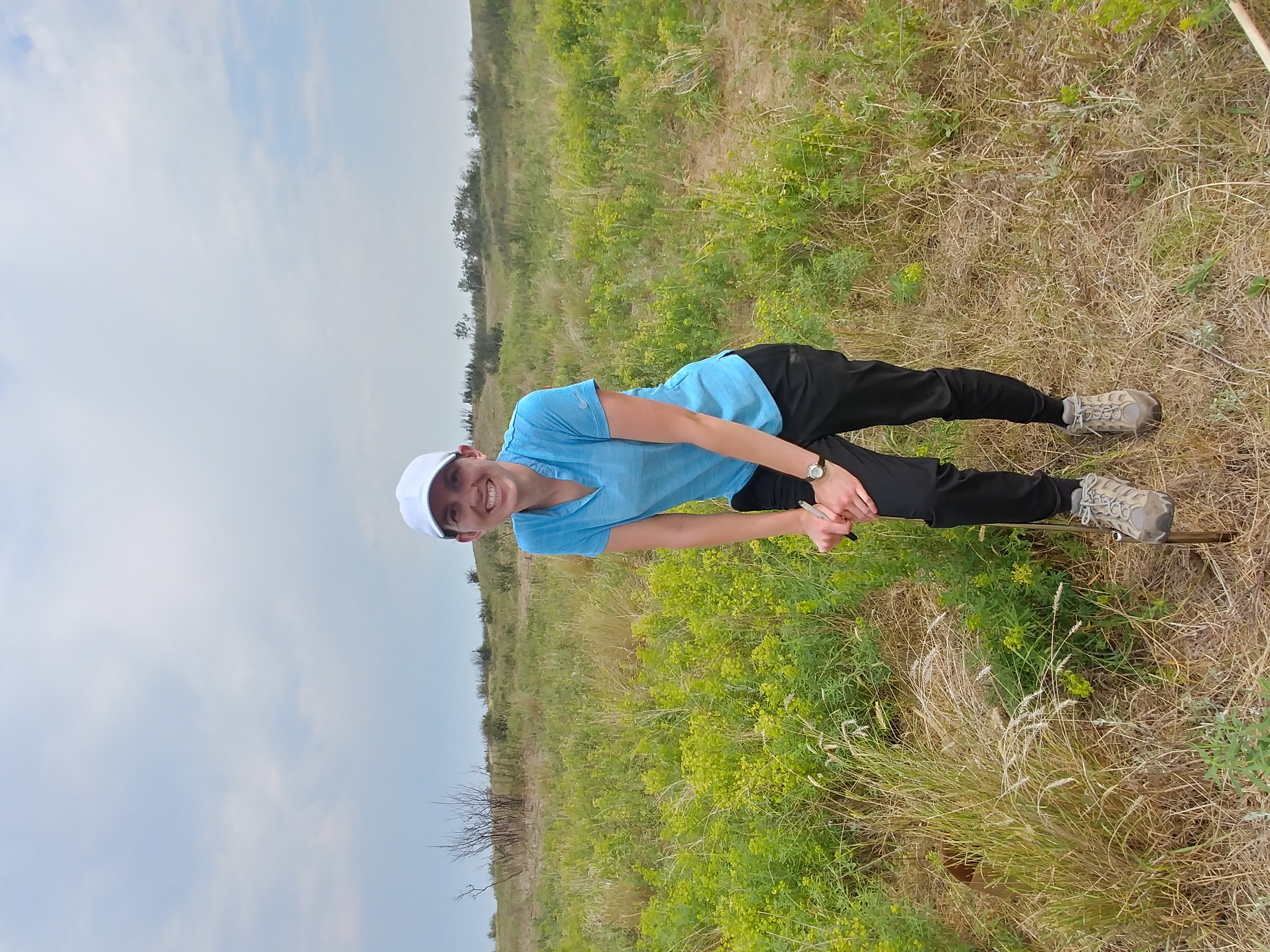
MSc Student
Erin completed a BSc in Environmental Sciences from the University of Guelph in 2018. Through her undergrad and working for Agriculture and Agri-Food Canada she developed an interest in understanding the relationships between soil and plants and what factors can affect these relationships. Erin's MSc project, co-supervised with Dr. Jon Bennett in Plant Sciences, will be looking at the effects of herbicide use for the control of the invasive leafy spurge on rangeland functioning. Erin is applying herbicide at different frequencies and measuring changes in plant and soil microbial communities, leafy spurge density and soil nutrients. In her free time she enjoys playing ringette, knitting and reading.
Akeem Shorunke, M.Sc.

MSc Graduate
Thesis: Influence of Nitrogen Application and Crop Residue on Drivers of Microbial Nitrous Oxide Emissions in Canola (Brassica napus L.) Production
Akeem Shorunke grew up in an agrarian community in the southwestern part of Nigeria, where his love for agriculture started. He obtained his B.Agric.Tech from Federal University of Technology, Minna Nigeria in 2004 with a major in Soil Science. His love for advanced education, international exposure and in-depth research led him to apply to the University of Saskatchewan Soil Science Department for his M.Sc. in 2016 under the supervision of Drs. Bobbi Helgason and Rich Farrell. He loves field and laboratory research. His M.Sc. research investigated GHG emissions (N2O and CO2) during microbial decomposition of different field crop residues. He used molecular tools and stable isotope probing to link microbial communities and soil biogeochemical processes. Currently, he works full time as an Appraisal Agrologist with the Saskatchewan Assessment Management Agency and hopes to further his Soil Science education by doing a PhD in the future.
Claire Kohout, M.Sc.

MSc Graduate
Thesis: The Plant Growth-Promoting Potential of Root-Associated Bacteria from Plants Growing in Stressed Environments
After graduating Claire returned to Argonne National Lab in Illinois to work on the development of a nanostructured silica based adsorbent for bioproduct recovery. From there, she accepted a position as a research specialist at the University of Chicago, where she now manages the DFI Symbiotic Strain Bank. Claire and her team have cultured and characterized ~2000 bacterial strains isolated from healthy human donors with the goal of developing new probiotics that can be used to help prevent disease and restore gut health.
Natalie Blain. M.Sc.
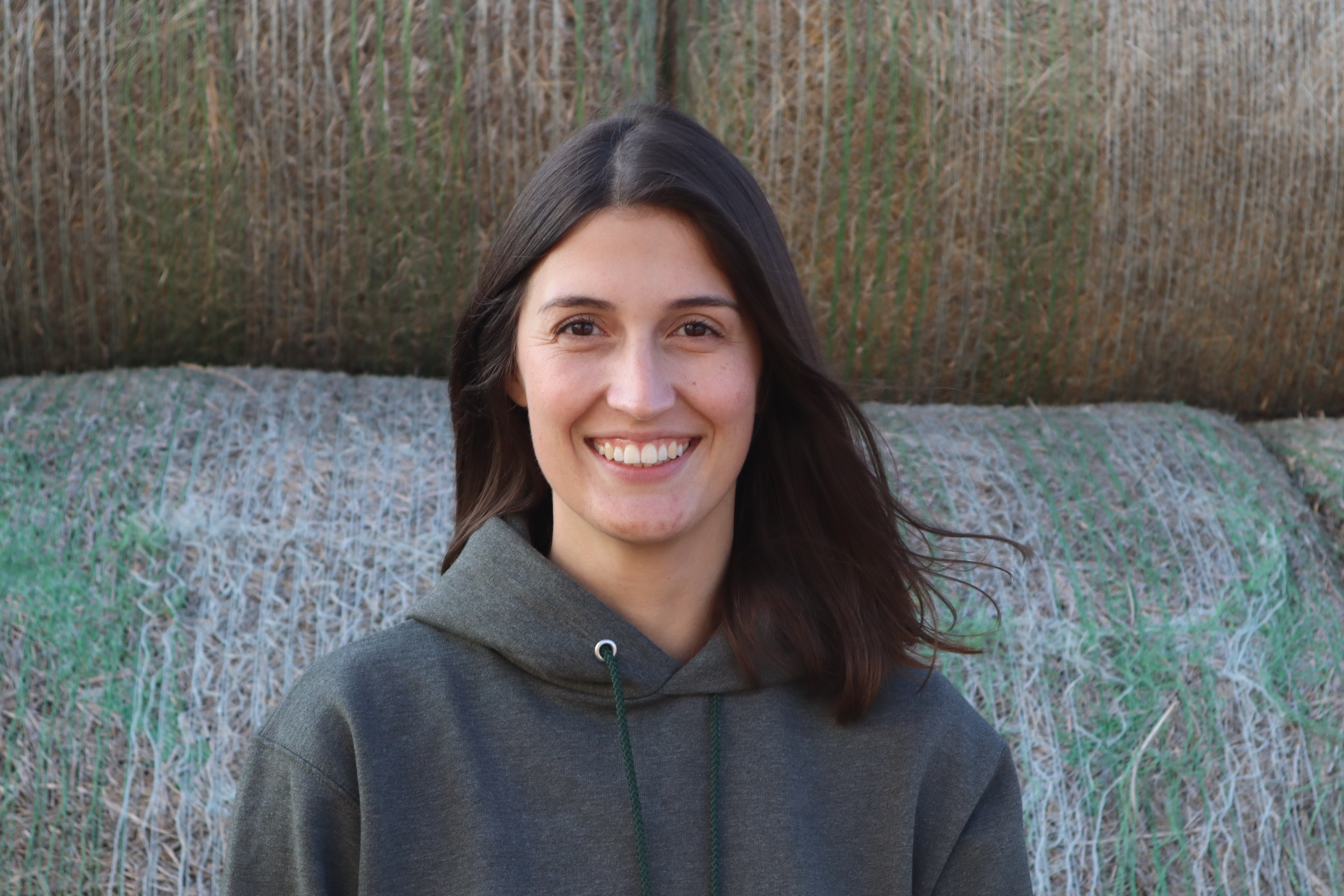
MSc Graduate
Thesis: A survey of the bacterial root endophytes associated with the natural vegetation at the Bitumount Provincial Historic site, Alberta, Canada.
Natalie Blain was raised in Prince Albert, Saskatchewan. She received her B.Sc. in Agriculture in 2013 from the University of Saskatchewan, where she majored in Environmental Science. She continued her education and received her M.Sc. in Soil Science in 2016 from the University of Saskatchewan. Her M.Sc. was focused on root endophytic bacteria in hydrocarbon contaminated soils and was under the supervision of Drs. Jim Germida and Bobbi Helgason. In 2017, Natalie began working at BASF Canada where she is a field research biologist. Her main focus with BASF is with row crop fungicides.
Sarah Kuzmicz, M.Sc.
MSc Graduate
Thesis: The Effects of Long Term Agricultural Production on Soil Microbial Diversity
Sarah Kuzmicz is a Research Assistant in Soil & Environmental Biochemistry at Agriculture and Agri-Food Canada. Sarah's M.Sc. thesis "The effects of long term agriculture production on soil microbial diversity" examined the soil microbial communities in the AAFC Lethbridge Rotation ABC Historical Dryland Plots.
Hannah Konschuh, M.Sc.

MSc Graduate
Thesis: Asessing microbial community dynamics and carbon mineralization with depth across an eroded agricultural landscape at St. Denis National Wildlife Area
Hannah Konschuh is a grain farmer, operating Generation Land & Grain Co. Ltd. near Cluny Alberta, growing wheat, canola, barley, and yellow peas. She completed a B.Sc in Agriculture and a M.Sc. in Soil Science from the University of Saskatchewan, supervised by Dr. Bobbi Helgason and Dr. Angela Bedard-Haughn. After completing her Msc., Hannah worked as a Research Assistant at AAFC under Dr. Bobbi Helgason and then went on to work in a number of research and policy roles prior to joining her family farm. The first chapter of Hannah’s Msc. research was published in Agriculture, Ecosystems, and Environment in 2014, titled “Microbial distribution in an eroded landscape: Buried A horizons support abundant and unique communities”.
Hannah is a past director with the Alberta Wheat Commission (AWC) and has served in various other leadership roles within the agriculture sector. Hannah continues to serve as a committee member with the Wheatland and Area Surface Rights Society. Lastly, Hannah co-hosts a podcast called The Diversity Imperative that seeks to have rich and candid conversations about the value of diversity, equity, and inclusion in the agriculture sector.
Undergraduate Research Assistants
Joshua Fiddler
Jessica Hubenig
Olivia Yurach, B.Sc.
Hayley Bendtsen, B.Sc.
Kira Blomquist, B. Comm.
Jaelyn Dietz, B.Sc.
Cordell VanGenderen, B.Sc.
Lauren Reynolds, B.Sc.
Nicholas Keenen, B.Sc.
Zahra Movahedzadeh, DMD
Sneha Misra, CPA
Co-Op Students
Veronica Wang, University of Victoria Microbiology and Immunology Co-Op Program
Kyle LeBlanc, University of Victoria Microbiology and Immunology Co-Op Program
Ryan LaBossiere, University of Victoria Microbiology and Immunology Co-Op Program

